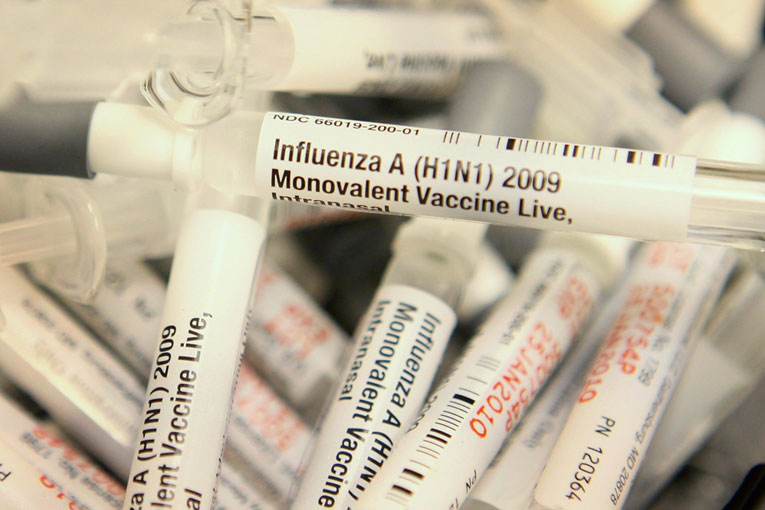

The European Immunisation Week takes place every year in April. This initiative promoted by the OMS, which this year was from 23 to 30 April, tries to remark the importance of immunological techniques to prevent infectious diseases. Experts lay all their cads on the table in order to convince the public, and families in particular, about the importance of vaccination. Since they appeared for the first time to the present day, doubts about the effectiveness and safety of vaccines have been present in society to a greater or lesser extent.
In the eighteenth century, English physician Edward Jenner took the first step in what would be a long walk for vaccinology. Already at this early stage, his proposal was not exempt from controversy. Jenner put into practice the old Asian system of inoculation using lymph of milkers affected by bovine smallpox. Even though this preventive measure saved the lives of many people suffering from smallpox from 1796 onwards, it was not well received. One of the main arguments used was that healthy people were being contaminated. This conception is still damaging the public perception of vaccines nowadays. The test was performed on an eight-year-old child called James Philips, which only exacerbated criticisms. But Philips did not develop the disease.
This historical anecdote kicked off the debate about vaccines that took place on 21 April at the Octubre Centre de Cultura Contemporània. The event was conducted by Lluís Cerveró, member of the board of the Valencian Society of Health Sciences (SVCS). He encouraged the public to reflect on the benefits vaccination has brought to us during all this time.
The speakers, Ferran Calvo Rigual – head of Paediatrics at the Lluís Alcanyís Hospital in Xàtiva – and Antonio Portero Alonso – from the Health Coordination and Promotion Unit at the Department of Health of the Valencian Government – exposed their reasons in favour of vaccination and explained the process of approval and commercialisation of this type of preventive medicine. Obtaining a product licence for vaccines is a process that follows a series of criteria. Before introducing a vaccine in the children or adults’ schedule, it goes through a ratification process monitored by the Spanish Agency of Medicines and Medical Devices that will resolve if it is safe and effective. The effects and the immune response of the vaccine are the aspects evaluated.
Portero stated that «the bad opinion that some people have is due to a lack of knowledge on the subject». Portero, who participates in the elaboration of the vaccination schedule, thinks this is the reason behind the stigma on some vaccines, such as the human papillomavirus vaccine. There is even an association for women affected by the HPV virus vaccine. On this matter, Portero remarked that this vaccine has more benefits than risks since «the most common side effect is arm pain». The adverse effects, however, are frowned upon because they are induced to healthy people. Regarding diphtheria vaccines, they will run out by the end of the year. In this situation, Portero confessed that they had to prioritise pregnant women ahead of five- and six-year-old children because there are not enough for everyone. He said that «this is a European-scale problem» because laboratories are not producing them anymore.
But, how can patients and families be persuaded into vaccination? This is Fernando Calvo’s main goal. The paediatrician insists on the importance of vaccination «to prevent everybody from contracting the disease». Paediatricians and other experts agree on the basic aspects regarding children’s vaccination schedule. However, there are still extreme positions and conspiracy theories. Some vaccines are administered collectively, but the decision to vaccinate is subjected to personal liberty. José Tuells, director of the Balmis Vaccinology Chair of the University of Alacant, in a recent interview with Mètode TV, speaks of «social vaccinology» in order to establish strategies to minimise the rejections towards vaccines. For his part, Fernado Calvo understands that some families are reluctant to vaccinate their children. When a situation like that happens, he informs and negotiates. The paediatrician says he likes «patients who make questions but let themselves to be persuaded and do not question every decision the doctor makes».
Marta Navarro. Journalism student at the University of Valencia.
© Mètode 2016.





